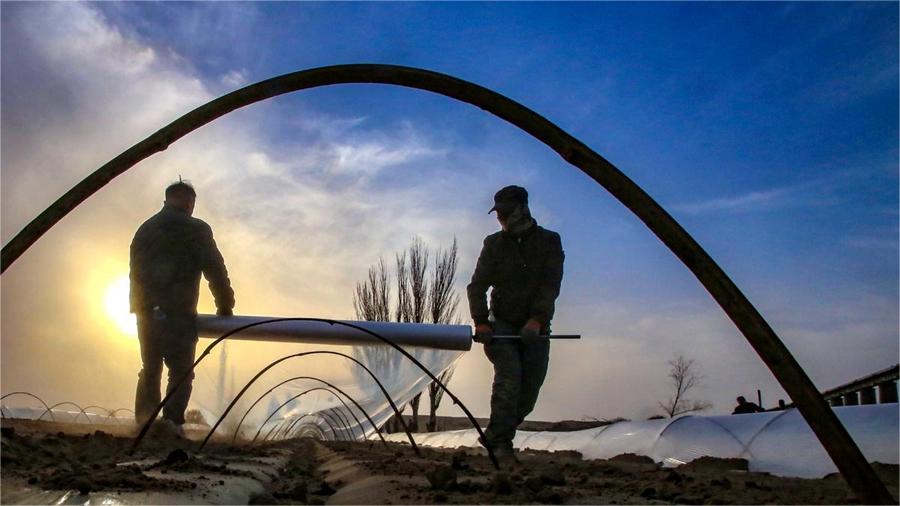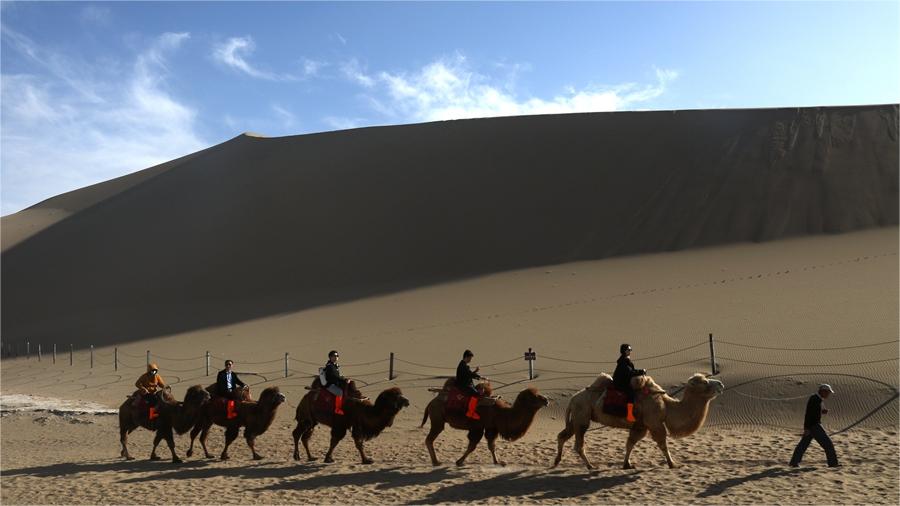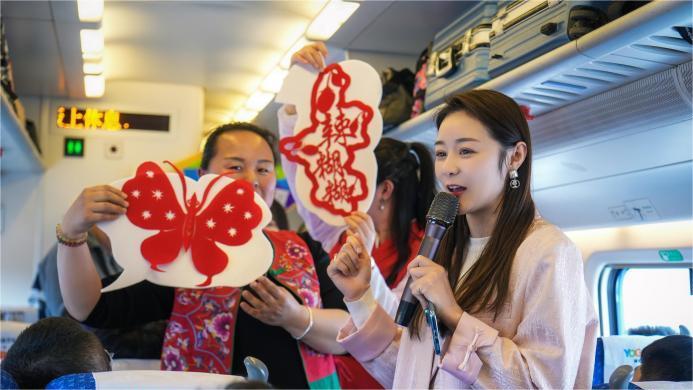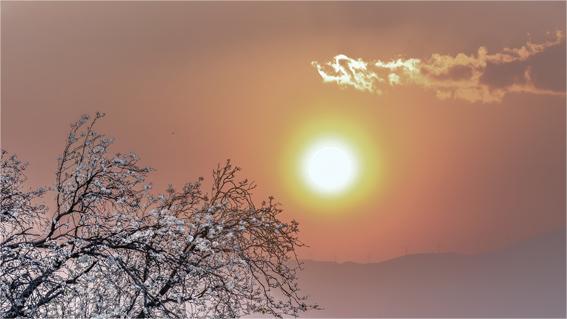Letter from China: A harmonious blend of tourism and local life in China
NANCHANG, March 28 (Xinhua) -- As spring unfolds, Wuyuan comes to life, welcoming travelers from near and far during one of the liveliest times of the year.
As I approached the county of Wuyuan in east China's Jiangxi Province, vehicles with plates from various regions zipped past on the highway. En route, I was greeted by a sea of golden rapeseed flowers. Amidst the vibrant blooms, the colorful attire of tourists and the sound of laughter captured my attention.
Revered as "China's most beautiful countryside," Wuyuan saw a record 26.2 million visitors from across the nation last year. The momentum continued into the new year, with 3.6 million tourists visiting the county between January and February, marking a 14.3 percent increase from the previous year.
This is my sixth journey to Wuyuan, as I love traveling outside cities to find inspiration and explore rural landscapes.
The county's picturesque scenery never fails to astound me. As I enjoyed the fresh air, gushing streams, dainty flowers and a tranquil atmosphere of rustic simplicity, I felt the pulse of local tourism getting stronger.
Mornings in early spring often carry a slight chill, particularly after rainfall. Raindrops trickle from the petals of rapeseed flowers, filling the air with the scent of fresh earth. After arriving at Sixiyan Village at 8 a.m., I hoped to capture the village, which boasts a history of over 800 years, in its serene slumber. However, before I could get a glimpse of its tranquil streets, I was greeted by the sound of joyous chatter.
"Look at those Hui-style buildings and golden rapeseed flowers, it's so beautiful!" Such praise enveloped me as I entered the village among a dense crowd of tourists. Astonished by the size of the group, I couldn't help but wonder about their story. So, I approached an elder from the group who was busy taking photos with his mobile phone.
"We came from northeastern China and there are almost 1,000 tourists in our group," said the 67-year-old. He told me that the group had embarked from Dalian, a port city thousands of kilometers away, with Wuyuan being their first stop on a 14-day journey. Their itinerary includes visits to south China's Hainan Province and Guangxi Zhuang Autonomous Region.
In pink overcoats and Mamianqun, a traditional Chinese long pleated skirt, a group of elegantly dressed women were also taking photos in the flower fields, their faces beaming with vitality and joy. Intrigued, I approached them. Among them, Meng Guiping, 65, informed me that she and the other 16 members hailed from Tianjin Municipality in northern China.
"It's easy to travel almost anywhere nowadays, so we try to visit as many places as possible," said Meng. "The perfect blend of natural scenery and local culture in Wuyuan is truly worth the trip." Viewing travel as an integral part of her retirement, Meng has set a goal of visiting at least five different destinations each year.
As the sun warmed the earth, I made my way to Huangling Village, another iconic destination in Wuyuan. Upon stepping onto the stone road in Huangling, I was captivated. The village echoed with accents from various regions and the clicking of cameras from tourists.
Upon reaching the viewing platform, my attention was drawn to a small green flag. Local guide Wang Minghua stood beside it, awaiting members of his tour group. Almost daily, Wang is busy catering to tourists from all corners of the country. "I don't have to worry about a shortage of tourists with such a lively tourism industry," Wang said with visible excitement.
According to statistics from Huangling, nearly 250,000 tourists have visited the village, averaging around 19,000 visitors per day, since the rapeseed flower blooming season started on March 8.
As the day was still young, I opted to continue exploring the scenic area alongside the crowd, seeking more surprises until the alluring aroma of rice wine brought me to a halt. I came across a bustling store filled with customers eager to sample the local delicacies, not just rice wine but also various snacks.
The owner told me that he has been crafting rice wine for over a decade. He started selling rice wine at the scenic spot in 2021, consistently moving more than 25,000 kg of the beverage annually and yielding an income of more than 800,000 yuan (about 112,758 U.S. dollars).
My time in Wuyuan not only provided me with a joyful travel opportunity, but also gave me a fresh outlook on life. I am sure that integrating tourism into everyday life will create many more delightful opportunities.
"Tourism has become an essential aspect of a better life among urban and rural residents," said Dai Bin, president of the China Tourism Academy. He believes that in 2024, domestic tourism will enter a new stage of fast development, and the recovery of the inbound and outbound tourism market will accelerate, too. According to his prediction, China will see domestic travellers exceed 6 billion this year, generating an estimated revenue of 6 trillion yuan.
Photos
Related Stories
- Tourism thrives in Guangxi's Xinhe township
- NW China's Ningxia launches special trains for culinary tourism
- Train tickets for popular destinations for first day of Qingming holidays sold out, tourism momentum to last: experts
- Shanghai receives 326 million tourists in 2023
- European tourists enjoy tours in Beijing under new visa-free policy
- Next internet celebrity city emerges amid China's cultural tourism boom
Copyright © 2024 People's Daily Online. All Rights Reserved.









